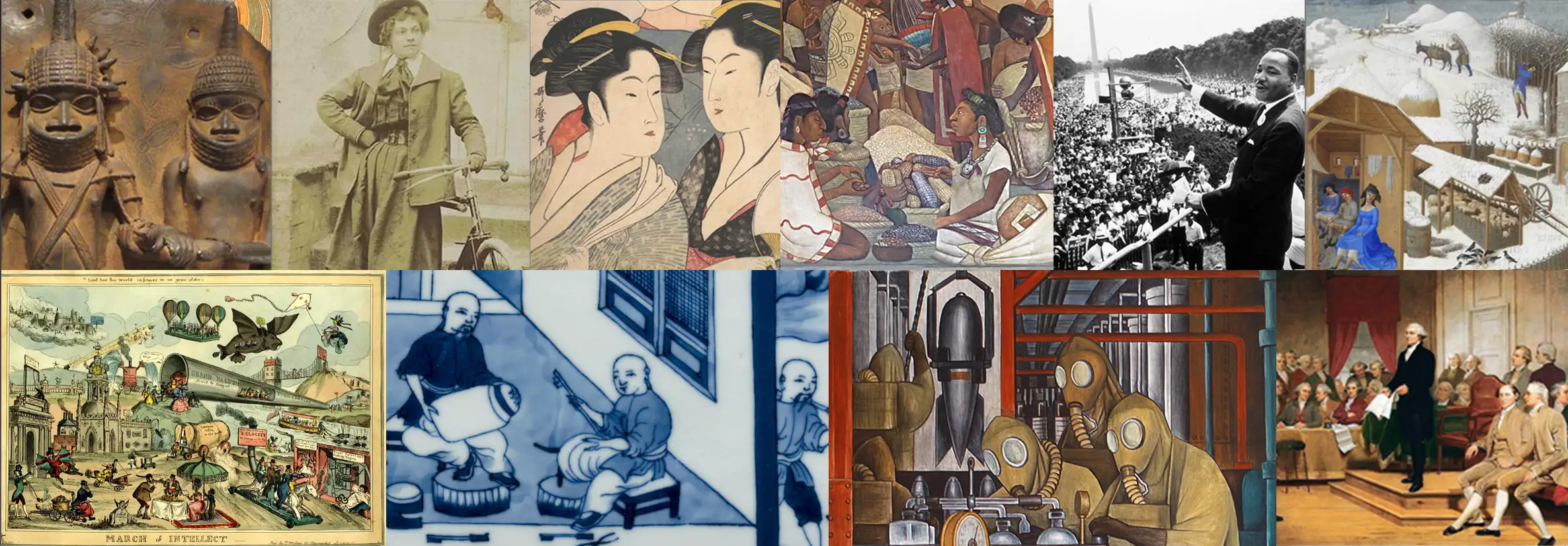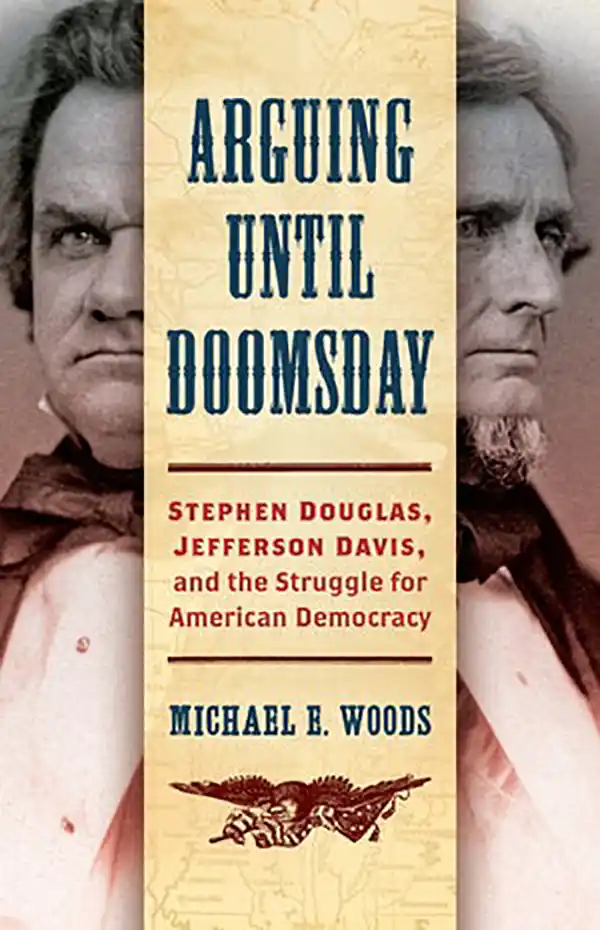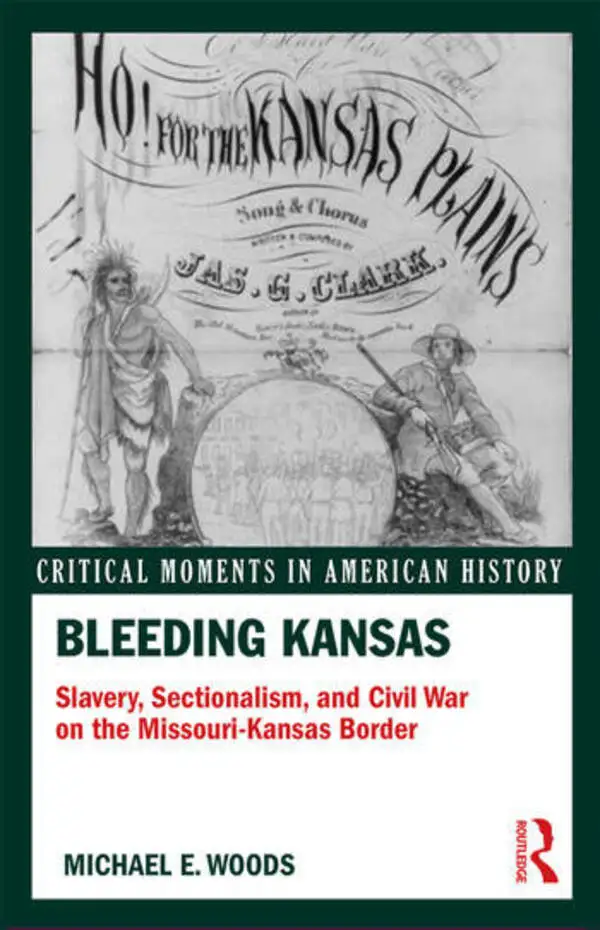Woods, Michael

Specialties:
Early Republic and Antebellum U.S., Civil War Era, Political History, Cultural History, History of Emotions, Slavery and Emancipation
Books
Michael Woods
Distinguished Professor in the Humanities, Director of the Andrew Jackson Papers | U.S. Political History
I study the political and cultural history of the nineteenth-century United States, with particular interest in partisanship and the politics of sectionalism and slavery from the 1830s through Reconstruction. I am also the Director of The Papers of Andrew Jackson.
My most recent book, entitled Arguing until Doomsday: Stephen Douglas, Jefferson Davis, and the Struggle for American Democracy (University of North Carolina Press, 2020), uses a dual-biographical approach to study the internal conflict that wracked the antebellum Democratic Party. Through the intertwined but often bitterly opposed careers of Stephen Douglas and Jefferson Davis, I trace the deep roots of the party’s dramatic rupture in 1860.
My first book, Emotional and Sectional Conflict in the Antebellum United States (Cambridge University Press, 2014), received the Southern Historical Association’s James A. Rawley Award for the best new book on the sectional conflict and/or secession. In it, I trace how emotions such as indignation and jealousy shaped regional and partisan identities, fostered pro- and antislavery political coalitions, and ultimately mobilized northerners and southerners to fight.
My second book, Bleeding Kansas: Slavery, Sectionalism, and Civil War on the Missouri-Kansas Border (Routledge, 2016) is an undergraduate-oriented text that combines my original narrative with edited primary documents. It surveys Kansas’s bloody Civil War-era history through the eyes of diverse combatants, from an Irish-born Missouri slaveholder to a self-emancipated freedman who died trying to liberate his wife
Currently, I am at work on a book-length study of John H. Van Evrie, a shadowy but notorious northern proslavery propagandist. Operating out of New York City, Van Evrie wrote, edited, and published some of the mid-nineteenth-century’s most repulsive racist and proslavery texts. Perhaps most enduringly influential for popularizing the slogan “white supremacy,” Van Evrie was an aggressive publicist who repackaged academic ideas about racial hierarchy into a product that he peddled to a wide audience. Drawing on the histories of medicine, science, journalism and publishing, and politics, this project will explain how Van Evrie turned a struggling urban newspaper into the cornerstone of a racist publishing empire.
I have also published articles in the Journal of the Civil War Era, Civil War History, Slavery & Abolition, West Virginia History, the Journal of American History, and the Journal of Social History. My research has been supported by American Council of Learned Societies, the American Philosophical Society, the West Virginia Humanities Council, and the National Endowment for the Humanities.
At the University of Tennessee, I teach undergraduate and graduate courses on nineteenth-century U.S. history, political history, slavery and emancipation, and the history of emotions. I welcome graduate applications in all these fields.
Research Interests
Early Republic and Antebellum U.S., Civil War Era, Political History, Cultural History, History of Emotions, Slavery and Emancipation
Selected Publications
Arguing until Doomsday: Stephen Douglas, Jefferson Davis, and the Struggle for American Democracy (University of North Carolina Press, 2020)
“The Compromise of 1850 and the Search for a Usable Past,” Journal of the Civil War Era 9 (September 2019): 438-456
“Secession and Disunion,” in The Cambridge History of the American Civil War, Volume 2, Affairs of State, ed. Aaron Sheehan-Dean (Cambridge University Press, 2019): 43-62
“‘Tell Us Something About State Rights’: Northern Republicans, State Rights, and the Coming of the Civil War,” Journal of the Civil War Era 7 (June 2017): 242-268
“Tracing the ‘Sacred Relicts’: The Strange Career of Preston Brooks’s Cane,” Civil War History
63 (June 2017): 113-132
“Interdisciplinary Studies of the Civil War Era: Recent Trends and Future Prospects,” Journal of American Studies 51 (May 2017): 349-383
Bleeding Kansas: Slavery, Sectionalism, and Civil War on the Missouri-Kansas Border (Critical Moments in American History Series) (Routledge Press, 2016)
“A Theory of Moral Outrage: Indignation and Eighteenth-Century British Abolitionism,” Slavery & Abolition 36 (December 2015): 662-683
“Mountaineers Becoming Free: Emancipation and Statehood in West Virginia,” West Virginia History New Series 9 (Fall 2015): 37-71
Emotional and Sectional Conflict in the Antebellum United States (Cambridge University Press, 2014), winner, 2015 James A. Rawley Award, Southern Historical Association (for a distinguished book on secession and/or the sectional conflict published in 2013-2014)
“Politics and Changing Views of Jealousy in the Antebellum United States,” in Emotions and Social Change: Historical and Sociological Perspectives, eds. Ann Brooks and David Lemmings (Routledge Press, 2014): 156-172
“What Twenty-First-Century Historians Have Said about the Causes of Disunion: A Civil War Sesquicentennial Review of the Recent Literature,” Journal of American History 99 (September 2012): 415-439
“‘The Indignation of Freedom-Loving People’: The Caning of Charles Sumner and Emotion in Antebellum Politics,” Journal of Social History 44 (Spring 2011): 689-705
Education
Ph.D., University of South Carolina, 2012
M.A., University of South Carolina, 2009
B.A., Whitman College, 2007


